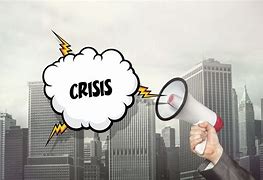Ticking Time for TikTok
In recent weeks, the debate over the fate of TikTok has once again taken center stage in the United States, sparking discussions across social media platforms and dominating headlines in the news. The prospect of a potential ban on TikTok by the U.S. government has stirred controversy and raised questions about the future of the popular social media app.
The roots of the TikTok tension can be traced back to concerns over data privacy and national security. The app, owned by Chinese company ByteDance, has faced scrutiny from lawmakers and regulators who worry about the potential for the Chinese government to access user data and influence content on the platform. These concerns have led to calls for action to address the perceived risks posed by TikTok's operations in the United States.
Highlights From TikTok CEO's Testimony Before Congress | Insider News (youtube.com)
Media coverage of the TikTok debate has been extensive, with news outlets offering a range of perspectives on the issue. Some reports have focused on the national security implications of allowing a Chinese-owned app to operate freely in the United States, citing concerns about data collection and potential espionage. Others have highlighted the cultural impact of TikTok and the role it plays in shaping trends, fostering creativity, and connecting users around the world.
Is the US banning TikTok? What the sell-or-ban bill just passed by Congress means for you. (msn.com)
However, it's worth noting the irony of discussing the potential ban of TikTok on social media and in the news itself. The very platform that is at the center of the debate is also the primary means through which the discussion is taking place. Users on TikTok and other social media platforms have been vocal in expressing their opinions on the matter, with hashtags such as #SaveTikTok and #BanTikTok trending on various platforms.
Moreover, the debate over TikTok reflects broader concerns about the power and influence of social media companies in today's digital age. As social media platforms increasingly shape public discourse and influence cultural trends, questions about data privacy, content moderation, and foreign influence are becoming increasingly prominent.
In conclusion, the debate over TikTok's future in the United States highlights the complex interplay between technology, geopolitics, and media dynamics in the digital age. As discussions continue to unfold both on and offline, it remains to be seen how policymakers, regulators, and users will navigate the challenges and opportunities presented by the evolving landscape of social media.




The media coverage on the ban on TikTok has been everywhere. To the point where my grandparents, whom aren't on social media, ask about it. It has been seen in news, on magazines and even now, in an online blog. Great Post!
ReplyDeleteI found your post to be really interesting. You make a point about national security issues being a big issue over why TikTok is facing a ban, and I have been wondering why these issues don’t exist within platforms such as Facebook. Maybe it’s due to the fact that Facebook rose to fame in the United States, I’m not sure. Additionally, I am wondering how other countries are facing this issue.
ReplyDeleteGreat post!